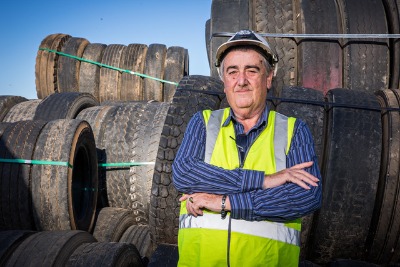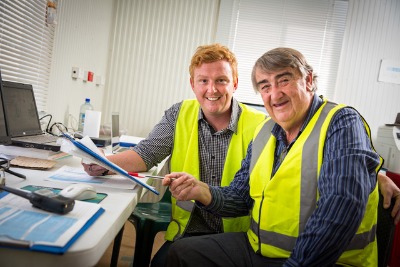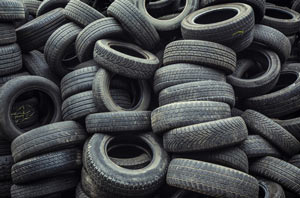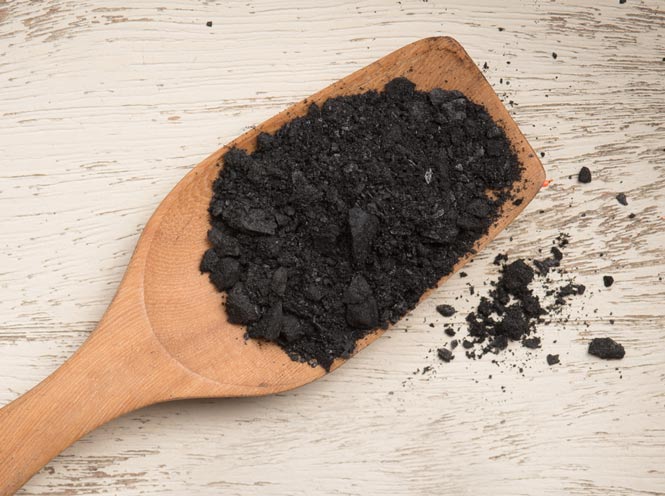Our September newsletter features the story of how a Hornsby shareholder reached out to NSW Environment Minister Matt Kean. We also turn the spotlight on two of our home-grown technical heroes. And we touch base on Australia’s growing problem with recycling old tyres.
All that and more in this edition of the GDT Newsletter.
Letter to your MP?

One enterprising GDT shareholder in the northern Sydney suburb of Hornsby recently wrote to his local MP who happens to be New South Wales Minister for the Environment Matt Kean.
He received a very friendly and helpful reply which pointed out that the responsibility for funding the proposed GDT tyre recycling plant in Wagga rested with the Deputy Premier John Barilaro and provided the Departmental contact if he wanted to follow-up further.
Securing political action (and funding) is a matter of communication and pressure, so if any shareholder feels that way inclined they should take up the matter of funding for any of the proposed GDT tyre recycling plants in Warren, Wagga and Toowoomba, by dropping a note to their local member. It could be the key to securing the funding that will help us reach full commercial operations in Australia.
Our heroes

We recently contributed an article to an international recycling newsletter about our GDT technical heroes, which seemed to be a good opportunity to stop and reflect on the scientific and engineering excellence that underpins our company.
Naturally, we are talking about Technical Director Denis Randall who developed the process that turns an unwanted environmental waste product like end-of-life tyres into high value, refinery ready oil, carbon and steel, who is ably assisted by National Plant Manager Zac Cox.
Since much of their work is conducted at the Warren facility, GDT COO Trevor Bayley has nicknamed Denis, the ‘Wizard of Warren‘ and Zac, the ‘Wizard‘s Apprentice‘.
In the article, Denis, who has a PhD. plus degrees in chemistry, mathematics and metallurgy, said that initially his idea behind the development of this technology was for garbage waste disposal, because he lived in Indonesia and the Australian Embassy was just down the road from a very smelly garbage tip.
“Hence the design had to be one of relative low cost and in my mind had to be environmentally and technically suitable for a developing country like Indonesia.
“When I returned to Australia I was asked if this process could be used for destruction of end-of-life tyres to which I replied ‘it could’, in fact any organic material can be deconstructed this way.
“That’s when Craig Dunn and Trevor Bayley stepped in to provide expertise in finance and management and the start of Green Distillation Technologies in 2009.

Zac Cox joined GDT with degrees in chemistry and chemical engineering and says he is fortunate to benefit from the decades of passion and hard work by Denis Randall to develop something primarily focused on environmental best-practice.
“GDT has worked to develop something without energy-intensive feedstock preparation, shredding, crumbing etc, and equipment designs that do not require any complex manufacturing processes, as we need to work in a low maintenance environment benefited by mild processing conditions – low-temperature, near-ambient pressures and without any aggressive chemical inputs.
“Our products, oil, carbon, reclaimed steel are accomplished primarily by keeping designs simple and are based on sound engineering principles, with a drop of genius from our inventor. These are but some of the important characteristics unique to our technology, which in the longer term will benefit rollouts in areas lacking technically skilled labour”, Zac Cox said.
MTAQ supports waste legislation

A recent issue of Paint and Panel magazine highlighted the fact that the Motor Traders Association of Queensland strongly supports the Government introducing landmark legislation that marks a new era in Australia’s management of waste, with over half a million tonnes of rubbish being shipped overseas every year.
The article says: “The Recycling and Waste Reduction Bill 2020 will lead to a major overhaul of Australia’s waste and recycling capacity, creating enormous new commercial opportunities and jobs… The legislation will ban the export of end-of-life tyres as well as waste plastic, paper and glass and has been agreed to by both levels of government earlier this year.”
The MTAQ is an organisation that has put their ‘money where their mouth is’ with their Group Chief Executive Dr Brett Dale saying, “This is an excellent opportunity to remodel Australia’s waste management, protect our environment as well as create economic opportunities for a circular economy with recycling at its core.
“Earlier this year MTA Queensland made the decision to invest in an Australian company called Green Distillation Technologies Corporation (GDTC), who use a unique process called destructive distillation to break down old tyres into three high quality products – oil, carbon and steel. The tyre does not have to be shredded before this process is undertaken and is free of emissions,” he said.
Australians agree that tyres are a world-wide problem

A survey conducted by Keep Australia Beautiful has found that although there was overall agreement that the disposal of end-of-life tyres is a worldwide environmental problem, a significant majority did not know what happens after they are left with the retailer to be recycled.
The survey aimed to uncover what Australians thought about the disposal of end-of-life tyres when they could no longer be re-treaded and re-used, and to use the information as a basis for measuring the level of consumer concern for the issue.
Keep Australia Beautiful Chief Executive Officer Val Southam said that as an organisation with a 45-year history based in the community and dedicated to achieving a sustainable and litter-free environment, seeking supporters’ opinion on key environmental questions was an important part of the organisation’s role.
“We identified the management of end-of-life tyres as a major problem and wanted to garner input into the issue from our supporters,” said Ms Southam.
When the respondents were asked to list the most responsible processing methods, just over 50% nominated the use of crumbed tyres as infill for sporting fields and playgrounds, and 25% nominated being processed back into oil and carbon.
“Overall, the survey comments show a definite desire for Australia to recapture and reuse the basic components of tyres in accordance with the concept of the circular economy,” Val Southam said.
To view the full survey report please visit: www.kab.org.au.
The global market for tyres is forecast to reach 2.7 billion units by 2025

“I remember being asked the question by a journalist at the news conference we held at the Queensland University of Technology to announce the results into the tests into the quality of the oil derived from old tyres as a result of our process,” recalls Trevor Bayley, COO of Green Distillation Technologies.
“On learning that we were recycling end-of-life tyres into oil, carbon and steel, she asked, ‘what happens, when you run out of tyres’?”, as clearly like most of the population she had no idea how many tyres our society produces around the world each year.
“For a long while, we have quoted that 1.5 billion old tyres are produced each and every year, but that the number is increasing as India and China embrace the automotive age.
“But that number has now been upgraded to 2.7 billion by 2025, so if you had trouble getting your head around the previous estimate, just try and envisage how much 2.7 billion end-of life tyres would look like.
“So the answer is that if you think that GDT will run out of end-of-life tyres to process the answer is, ‘no, not soon’,” Trevor Bayley said.



